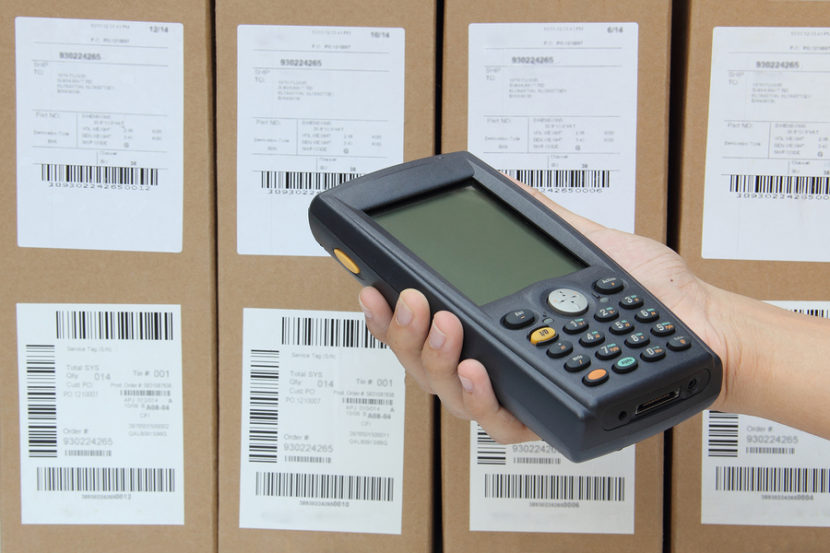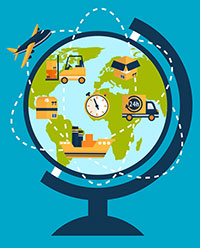Supply Chain Traceability is Going Digital: What You Should Do To Prepare
Creating a Common Digital Language for Supply Chain Traceability
By Judith Kirkness
Supply chain traceability for food refers to:
- the ability to trace animals or produce from the farm to the table, and
- the ability of food processors to trace every raw ingredient from its source through distribution, manufacturing and finally to the consumer.
For some food items supply chain traceability is already well-established. But for most foods we still have a long way to go.
The Keys to Supply Chain Traceability
How feasible supply chain traceability is generally depends on the length of the supply chain, how well connected the links in the chain are, and how complicated the processing of the item is. Each manufacturer in the chain needs to have one-up and one-down traceability. Then, there must be a way of pulling these details together from those who touch that product along its lifecycle.
Contagious Animal Diseases Trigger Government to Step In
With animal diseases like BSE (Bovine spongiform encephalopathy) and PED (Porcine epidemic diarrhoea) affecting exports and worldwide confidence in the safety of our food products, governments have become involved in supporting animal tracking from farm to kill floor.
In October, 2014, the Canadian government invested $7.5 million in a new national livestock traceability data service. Essentially, the aim is to bring together information from programs that already exist in different regions, like the Canadian Cattle Identification Agency (CCIA) and Agri-Traçabilité Québec (ATQ). The program also covers different species such as PigTrace for tracking swine. Farmers and transporters report the movement of animals to the registry and when the animal reaches the kill floor, that serial number or lot of animals is reported as expired, making a full trace possible. I call this the giant database approach. While it has proven possible for animals, it seems less feasible for other types of food processing.
Finding the Equivalent to the “Giant Database” for Other Sectors
The U.S.-based IFT Global Food Traceability Center convened a series of thought leadership summits beginning in 2011, culminating in a report that was released in 2013. The giant database idea, where every processor provides details of every receiving, manufacturing process and shipment was deemed to be unworkable. Instead, they proposed the idea of establishing an industry protocol for the storage of lot information, similar to the GS1 industry protocol for formatting barcode labels. Essentially software developers would ensure that the required lot information is available in the required format. There would then be a way for the government and/or your customers or partners to query your system if a food safety issue is suspected or identified.
Creating a Common Digital Language for Supply Chain Traceability
With the protocol approach, food processors wouldn’t be sending data regularly to a central database. But they would agree to make the relevant information available to eligible bodies if requested.
What the giant database and the protocol approach have in common is that the information must be available electronically, in a system that uses a common format. While existing GFSI programs require traceability and some have time limits on how fast you need to be able to pull recall information together, none currently require the information to be stored electronically.
Many companies still accomplish one-up and one-down traceability using paper systems, but paper puts limitations of how fast and how easily information can be shared. Even though a protocol hasn’t been finalized, many food processors are choosing to move to electronic recordkeeping practices using GS1 standards. Benefits include fast food recall reporting, lot-based expiry and inventory management, and controlling stock rotation.
These benefits support their GFSI compliance supporting time limits for pulling recall information together and ensuring FIFO or stock rotation is achieved.
Until the protocol is finalized, I recommend adopting GS1-128 protocols within your company and using scanning and Electronic Data Interchange (EDI) wherever possible to collect and transmit information from your suppliers and to your customers. Supply chain traceability is coming, and the more you prepare now the better positioned you’ll be down the road.
About the Author
Judith Kirkness is the author of The Traceability Factor, a practical guide for food manufacturers on collecting and using your traceability information for a competitive advantage, a partner in Minotaur Software, a traceability ERP developer that is also her family business and founder of a traceability consultancy firm www.traceabilitymatters.com.
To have more articles like this emailed to your inbox, become a GFSR Member today!

-
 FeaturedRisk management
The Cost of a Breach: What a Cyberattack Could Mean for Food Safety Recalls
FeaturedRisk management
The Cost of a Breach: What a Cyberattack Could Mean for Food Safety Recalls
-
 FeaturedRisk management
Securing the Food Chain: How ISO/IEC 27001 Strengthens Cybersecurity
FeaturedRisk management
Securing the Food Chain: How ISO/IEC 27001 Strengthens Cybersecurity
-
 FeaturedRisk management
Revolutionizing Food Safety Training: Breaking Out of the “Check-the-Box” Mentality
FeaturedRisk management
Revolutionizing Food Safety Training: Breaking Out of the “Check-the-Box” Mentality
-
 GFSI Standards
GFSI 2025: Building Trust, Tech-Forward Solutions, and Global Unity in Food Safety
GFSI Standards
GFSI 2025: Building Trust, Tech-Forward Solutions, and Global Unity in Food Safety
-
 FeaturedFood Safety
Integrated Pest Management: Strategies to Protect Your Brand’s Reputation
FeaturedFood Safety
Integrated Pest Management: Strategies to Protect Your Brand’s Reputation
-
 FeaturedFood Safety Culture & Training
No Open Door Policy: Challenges That Impact Pest Control in Food Processing Plants
FeaturedFood Safety Culture & Training
No Open Door Policy: Challenges That Impact Pest Control in Food Processing Plants




